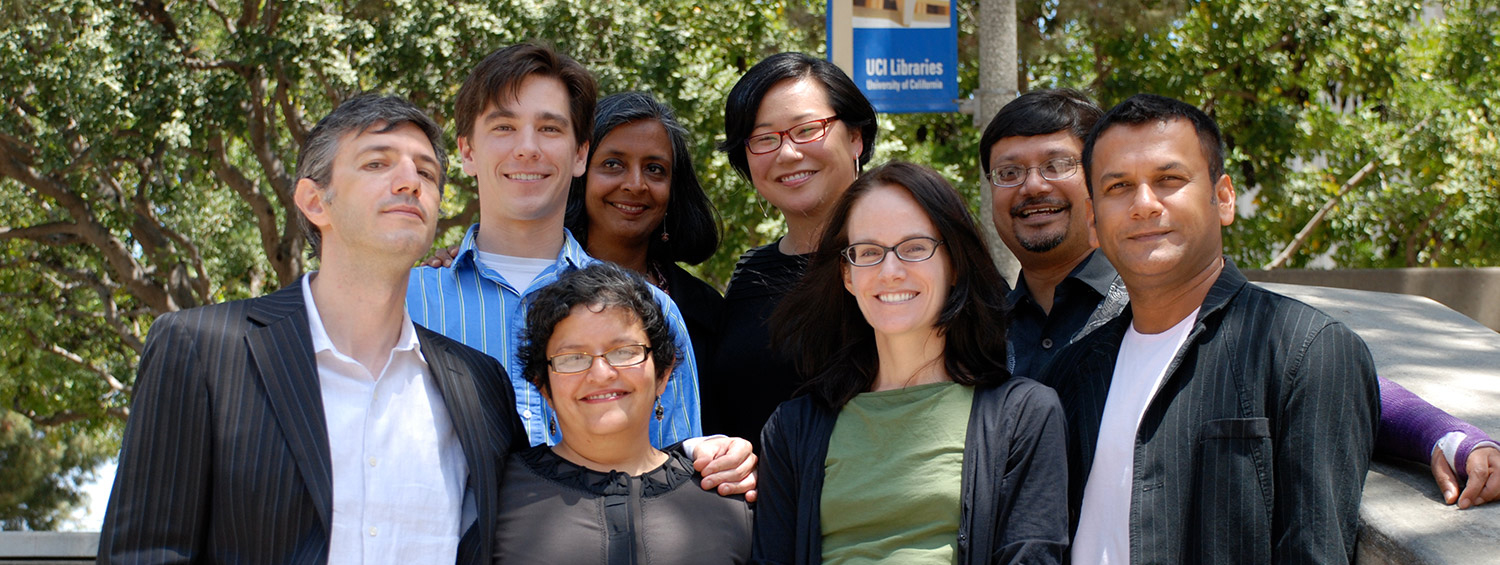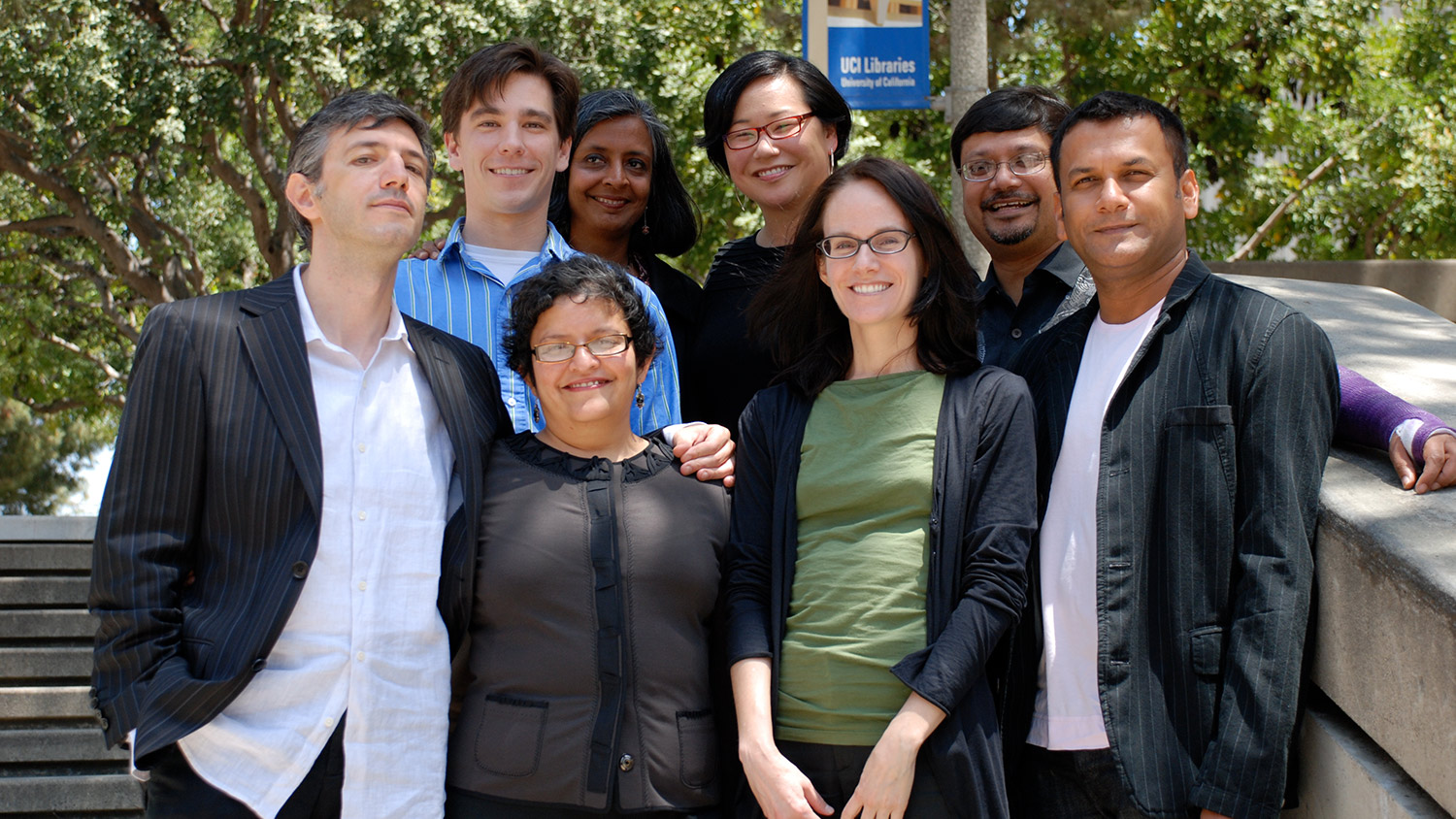Speculative Globalities
Bishnupriya Ghosh
English
UC Santa Barbara
Participants
Aimee Bahng
English
Dartmouth College
Cesare Casarino
Cultural Studies and Comparative Literature
University of Minnesota
Bishnupriya Ghosh
English
UC Santa Barbara
Colin Milburn
English
UC Davis
Geeta Patel
Middle East and South Asian Studies and Women and Gender Studies
University of Virginia
Rita Raley
English
UC Santa Barbara
Bhaskar Sarkar
Film and Media
UC Santa Barbara
Sudipta Sen
History
UC Davis
This Residential Research Group sought to develop more fully the logic of the premise that uncertainty is the only certitude of being in contemporary globalities. A statistical logic having to do with unknown or unstable states, lack of information, and the tasks of apprehension and prediction, uncertainty refers to a situation where the number and nature of all possible states are unknown. Hence it can be a particularly useful critical logic for what remains invisible, unknown, and unthought in our present confrontations with global phenomena.New global phenomena (e.g. yoga, bird flu, cellular robotics) in constant flux direct a rethinking of existing categories, established genealogies, fixed epistemological pathways, and available vocabularies. To follow the entangled circuitry of present global forms requires a radical openness to intervention from other epistemologies and, ideally, collaborative interdisciplinary investigation.
The group proposed radical openness as a critical habit—informed by uncertainty—as reasoned but imaginative speculation. The focus of the research group was to analyze multi-leveled global phenomena through the lenses of risk and uncertainty. What kinds of globalities are conjured in examining each phenomenon? What remains invisible, recessed? The corollary task is to rethink ways in which we can know, even recognize, such phenomena. Uncertainty approaches technological diffusions, pandemics, or drug use as global flows whose fluctuating states demand constant revision of existing intellectual paradigms; the wiring of genealogies in new combinations; historically and regionally comparative perspectives; and committed interdisciplinarity—if not a new vocabulary.


